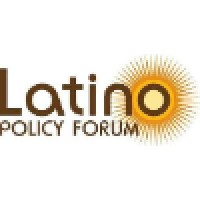
Center for Social Inclusion
Center for Social Inclusion's (CSI) mission is to catalyze communities, government, and other institutions to dismantle structural racial inequity. We craft and apply strategies and tools to transform our nation's policies and practices, in order to achieve racial equity. Our approach is organized into four strategies: POLICY & RESEARCH -- Working with community groups, government, and national organizations to develop policies that advance racial equity. TALKING ABOUT RACE -- Developing and sharing tools to talk about race and shift the dominant narrative. CAPACITY BUILDING -- Building leadership capacity through multi-racial coalition building, convenings, leadership development, and trainings. INSTITUTIONAL CHANGE -- Developing and implementing institutional change strategies to operationalize structural racial equity. Through our four strategies, CSI has developed programs to address racial inequities within specific issue areas and/or sectors. These programs include: - Government Alliance on Race and Equity - Energy Democracy - Food Equity - First Food - Broadband Equity - Transportation Equity - Race to Democracy - Communications Testing - Maya Wiley Fellowship Program - CSI Senior Fellowship






